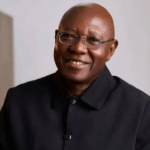
At a time when Ghana’s democracy is being tested by cynicism, disillusionment, and the rising cost of factional politics, the National Democratic Congress (NDC) stands at a historic crossroads. After the emphatic win in the 2024 elections, the 2028 elections will determine whether President John Dramani Mahama’s Reset Agenda takes root or not, but the bigger question is what happens after him.
Who among us has the vision, credibility, and political maturity to safeguard this reset and carry it into 2028 and beyond? The answer, I believe, is not found in recycled ambitions or mere popularity contests. It lies in the depths of leadership, integrity, and unity. And in this moment, one name rises above the rest—Hon. Akwasi Opong-Fosu.
1. Above Intra-Party Factionalism
Factionalism has long undermined the cohesion of our great party. While others may be defined by the cliques and camps they align with, Hon. Opong-Fosu has proven himself as a rare unifier. Having served under Chairman Rawlings during the difficult PNDC era, and later under all three NDC Presidents of the 4th Republic, he remains untainted by factional tags. This neutrality is not weakness—it is strength. It is the very foundation upon which the NDC can rally its rank and file around a common vision: sustaining Mahama’s Reset Agenda and securing electoral victory in 2028.
2. The Personality of the Ideal Politician
In today’s polarised Ghana, leadership must be more than rhetoric—it must be about trust, credibility, and balance. Hon. Opong-Fosu embodies these qualities. His integrity and moderate temperament make him respected not only across the NDC but even beyond partisan lines. He is approachable, principled, and fair—qualities of a statesman, not just a politician. In a country yearning for leaders who heal divides rather than exploit them, his personality sets him apart as the leader who can inspire confidence both at home and abroad.
3. Vast and Relevant Experience
Experience is no longer a luxury—it is a necessity. Hon. Opong-Fosu’s journey in public service spans decades, from shaping decentralisation and grassroots governance as a local government practitioner to national leadership as Deputy Minister and later Cabinet Minister, with sensitive portfolios such as Local Government and Rural Development, Environment, Science, Technology, and Innovation. His global and continental engagements have further enriched his perspective, expanded his networks, and strengthened his influence. This unique blend of local and international experience equips him to lead Ghana through the complexities of governance in the 21st century.
4. A Bridge Between Generations
Every successful movement must reconcile the wisdom of its elders with the aspirations of its youth. Hon. Opong-Fosu symbolises both continuity and renewal. His roots connect him to the founding ideals of the NDC, while his vision resonates with the younger generation eager for transformation. In him lies the rare ability to bridge generational divides, ensuring that Mahama’s Reset Agenda does not merely end in 2024 but evolves into a long-term national project.
Conclusion
As we confront the decisive years ahead, the NDC must put its best foot forward. The task before us is clear: to select a leader who can unify the party, win the trust of the Ghanaian people, and build on Mahama’s Reset Agenda with courage and competence. That leader, undoubtedly, is Hon. Akwasi Opong-Fosu. Rallying behind him is not merely a choice for party survival—it is a commitment to Ghana’s future. In my next article, I will highlight the achievements and track record of Hon. Akwasi Opong-Fosu and why he is our best bet for 2028.
Thomas Dindiego, former Communications Officer, Amenfi East